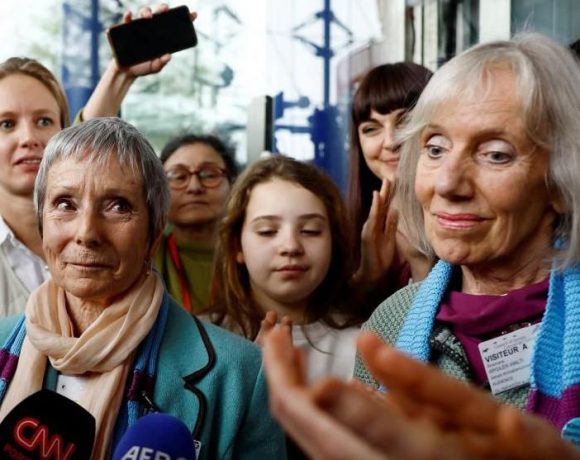
Swiss women who won a landmark climate change ruling at the European Court of Human Rights (ECHR) are feeling shocked and betrayed by their parliament’s refusal to comply with the decision. These women, referred to as the “climate seniors,” had previously argued in Strasbourg, France, that the Swiss government’s inadequate response to climate change, particularly extreme heat events linked to global warming, was harming their right to health and life.
In April, the court sided with them and mandated Switzerland, which has yet to meet its greenhouse gas emission reduction targets, to take more action. The court’s rulings are binding for member states, making this decision unprecedented. Climate activists had hoped it would set a precedent for using human rights law to protect citizens from health harms caused by worsening environmental conditions.
However, on Wednesday, the Swiss parliament voted against adhering to the ECHR’s ruling, claiming Switzerland already had an effective climate strategy in place. The parliamentary debate was emotionally charged, with right-wing politicians criticizing what they saw as overreach by “foreign judges,” while Green Party members condemned the discussion as “shameful” and “populist.”
Despite Switzerland’s struggles to meet its Paris Climate Agreement goals, which aim to limit global warming to 1.5°C above pre-industrial levels, opinion polls show many Swiss are concerned about climate change. The Alpine region is particularly vulnerable, with studies indicating that its glaciers, crucial to Europe’s water supply, could vanish by the century’s end if temperatures continue to rise.
The Swiss value their direct democracy system and prefer making decisions themselves, which explains why the “foreign judges” argument resonates with them. Recently, voters supported government proposals to increase renewable electricity production, though environmental groups argue these measures are insufficient to meet climate goals. Polls show a majority of Swiss voters oppose the ECHR’s involvement, believing the country is already doing enough to protect the environment.
Other nations, particularly the United Kingdom, are closely watching Switzerland’s rejection of the ECHR ruling. The UK government has faced pushback from the Strasbourg court over its plan to deport asylum seekers to Rwanda, leading some British voters to suggest leaving the court. However, such a move is unlikely in Switzerland, at least for now.
The final decision on whether to comply with the ECHR’s climate ruling rests with the Swiss government, which will announce its verdict in August. The ECHR did not specify what Switzerland must do, only that it must take more action. In a typical Swiss compromise, the government might present a list of measures taken since the climate seniors began their case, hoping for acceptance. If not, the climate seniors may return to court.
Picture Courtesy: Google/images are subject to copyright
